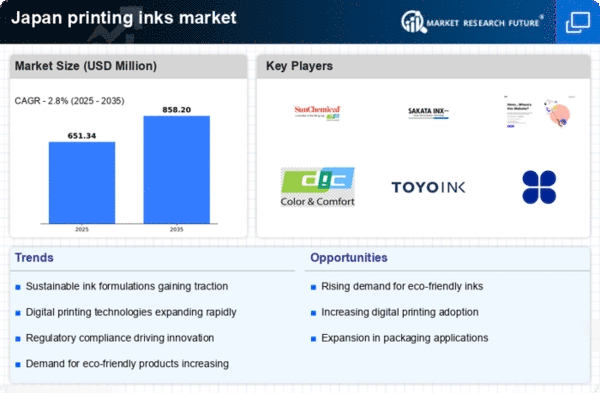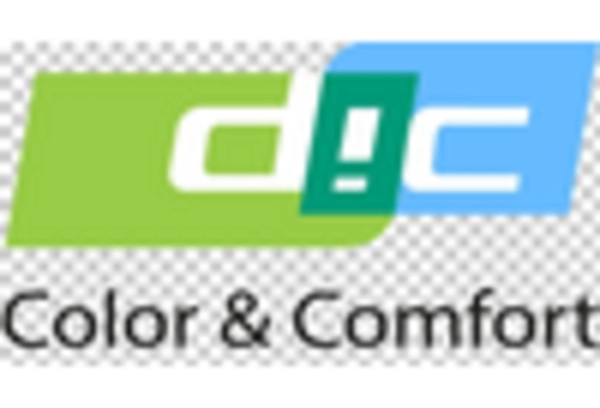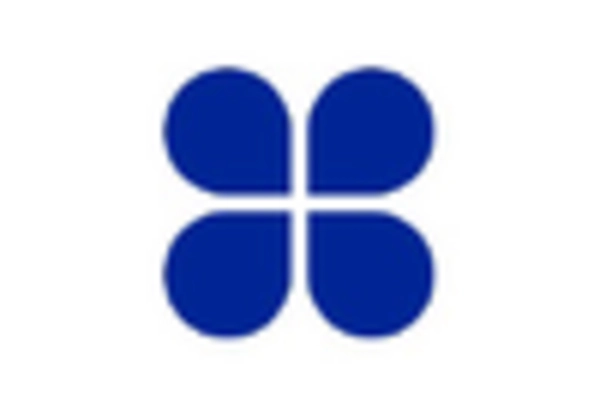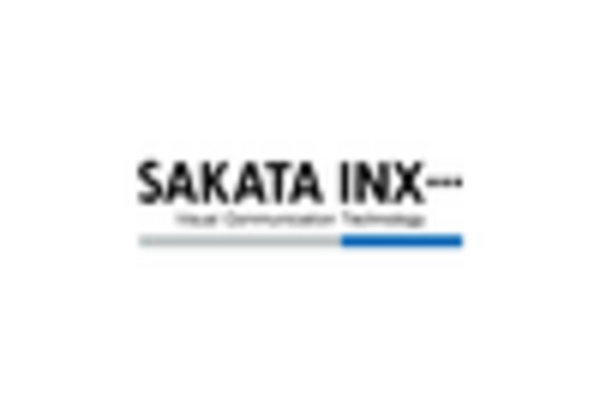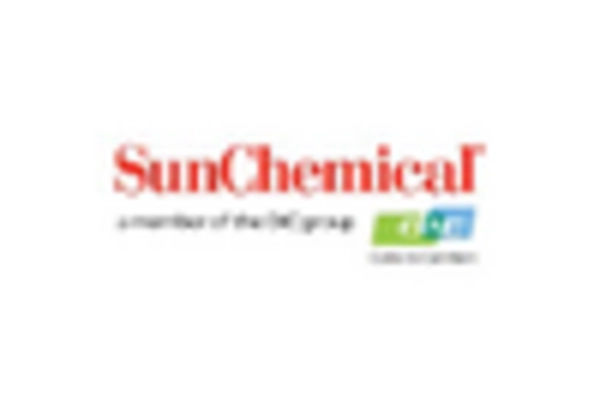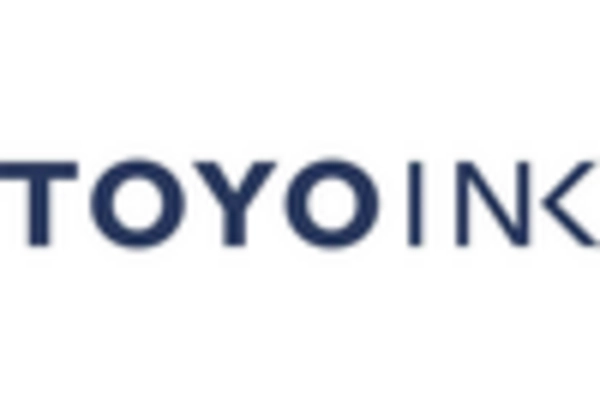The printing inks market in Japan is characterized by a competitive landscape that is increasingly shaped by innovation, sustainability, and digital transformation. Key players such as DIC Corporation (Japan), Toyo Ink SC Holdings Co., Ltd. (Japan), and Sun Chemical (US) are actively pursuing strategies that emphasize product development and environmental responsibility. DIC Corporation (Japan) has positioned itself as a leader in eco-friendly inks, focusing on reducing the environmental impact of its products, which aligns with the growing demand for sustainable solutions. Meanwhile, Toyo Ink SC Holdings Co., Ltd. (Japan) is enhancing its operational capabilities through strategic partnerships aimed at expanding its product portfolio and market reach, thereby reinforcing its competitive stance in the market.The business tactics employed by these companies reflect a moderately fragmented market structure, where local manufacturing and supply chain optimization are pivotal. Companies are increasingly localizing their production to reduce lead times and enhance responsiveness to market demands. This localized approach not only improves operational efficiency but also allows for better alignment with regional customer preferences, thereby strengthening their market positions.
In September DIC Corporation (Japan) announced a collaboration with a leading technology firm to develop advanced digital printing inks. This strategic move is significant as it positions DIC at the forefront of the digital transformation trend within the industry, potentially enhancing its product offerings and attracting a broader customer base. The integration of digital technologies into their ink solutions may also lead to improved customization and efficiency in printing processes.
In October Toyo Ink SC Holdings Co., Ltd. (Japan) launched a new line of bio-based inks, which underscores its commitment to sustainability. This initiative not only caters to the increasing consumer demand for environmentally friendly products but also enhances the company's reputation as a responsible manufacturer. The introduction of bio-based inks could potentially open new market segments and provide a competitive edge in an industry that is progressively leaning towards sustainable practices.
In August Sun Chemical (US) expanded its operations in Japan by investing in a new production facility aimed at increasing its capacity for high-performance inks. This expansion is indicative of Sun Chemical's strategy to strengthen its market presence and respond to the growing demand for specialized inks in various applications. The investment reflects a long-term commitment to the region and may enhance the company's ability to serve its customers more effectively.
As of November the competitive trends in the printing inks market are increasingly defined by digitalization, sustainability, and the integration of artificial intelligence (AI) into production processes. Strategic alliances among key players are shaping the landscape, fostering innovation and enhancing supply chain reliability. The shift from price-based competition to a focus on technological advancement and sustainable practices is likely to redefine competitive differentiation in the coming years, suggesting that companies that prioritize innovation and environmental responsibility will be better positioned for future success.


